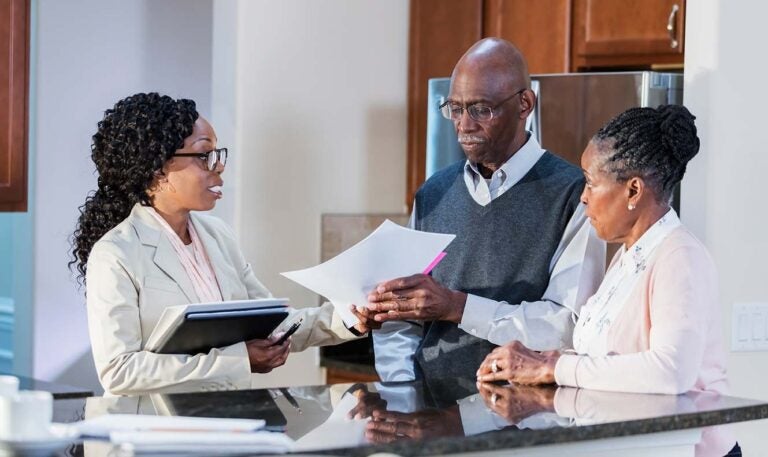Understanding Reverse Mortgage
What is a reverse mortgage loan? How do reverse mortgages work? Is a HECM the same as a reverse mortgage? How are they different? Here’s where you’ll learn the ABCs of reverse mortgage from the basics to how they compare with other financial products. And when you’re ready to get more personal, one of our qualified advisors will be ready to talk.
With a reverse mortgage, you — not the lender, own and control your home. You can't be kicked out so long as you uphold the terms of the loan.* As with a traditional forward mortgage, the lender simply puts a lien on the property to ensure the loan will be repaid. Learn More
*The right to remain in the home is contingent on paying property taxes and homeowner’s insurance, maintaining the home, and complying with the loan terms.
For starters, you’ll typically need to be a homeowner age 62 or older. However, Finance of America also offers exclusive options in certain states for homeowners as young as 55*. You’ll generally need about 50% equity in your home and must complete a financial assessment to ensure you can meet the loan’s terms. Additional requirements apply—speak with a loan officer for the complete list. Learn More
*Minimum age requirements vary by state and loan type. 62 is the minimum age for a HECM. Certain proprietary products have minimum ages as low as 55.
The Basics
View moreLike any financial product, reverse mortgages have their share of specialized terms. Here is a quick and easy reference to the most common ones.
Read article from Glossary of reverse mortgage termsA HECM is a reverse mortgage, but not all reverse mortgages are HECMs. Learn how they are different.
Read article from What is a home equity conversion mortgage (HECM)?Understanding the eligibility requirements of a reverse mortgage can is the first step to deciding if these financial vehicles are right for you.
Read article from Reverse mortgage eligibility requirementsHow Reverse Mortgages Work
View moreA reverse mortgage loan allows borrowers to tap into a portion of the equity in their homes as a lump sum payout, regular payouts, a line of credit, or a combination of
Read article from How much money can you get from a reverse mortgage?There are several compelling reasons for family members to be on a reverse mortgage together. Here is a rundown of what is possible.
Read article from Can family members get a reverse mortgage together?A line of credit in a reverse mortgage can offer multiple advantages to borrowers. Here's how they work and how they differ from other line of credit products.
Read article from How does a reverse mortgage line of credit work?Comparing Loans
Learn how our proprietary second-lien reverse mortgage product differs from the more commonly understood HELOC.
Read article from HomeSafe Second vs a home equity line of credit (HELOC)A traditional mortgage and a reverse mortgage have some similarities, but function quite differently. Here is an explanation of how each works and what that means for potential borrowers.
Read article from Traditional vs. reverse mortgage: a comparison






